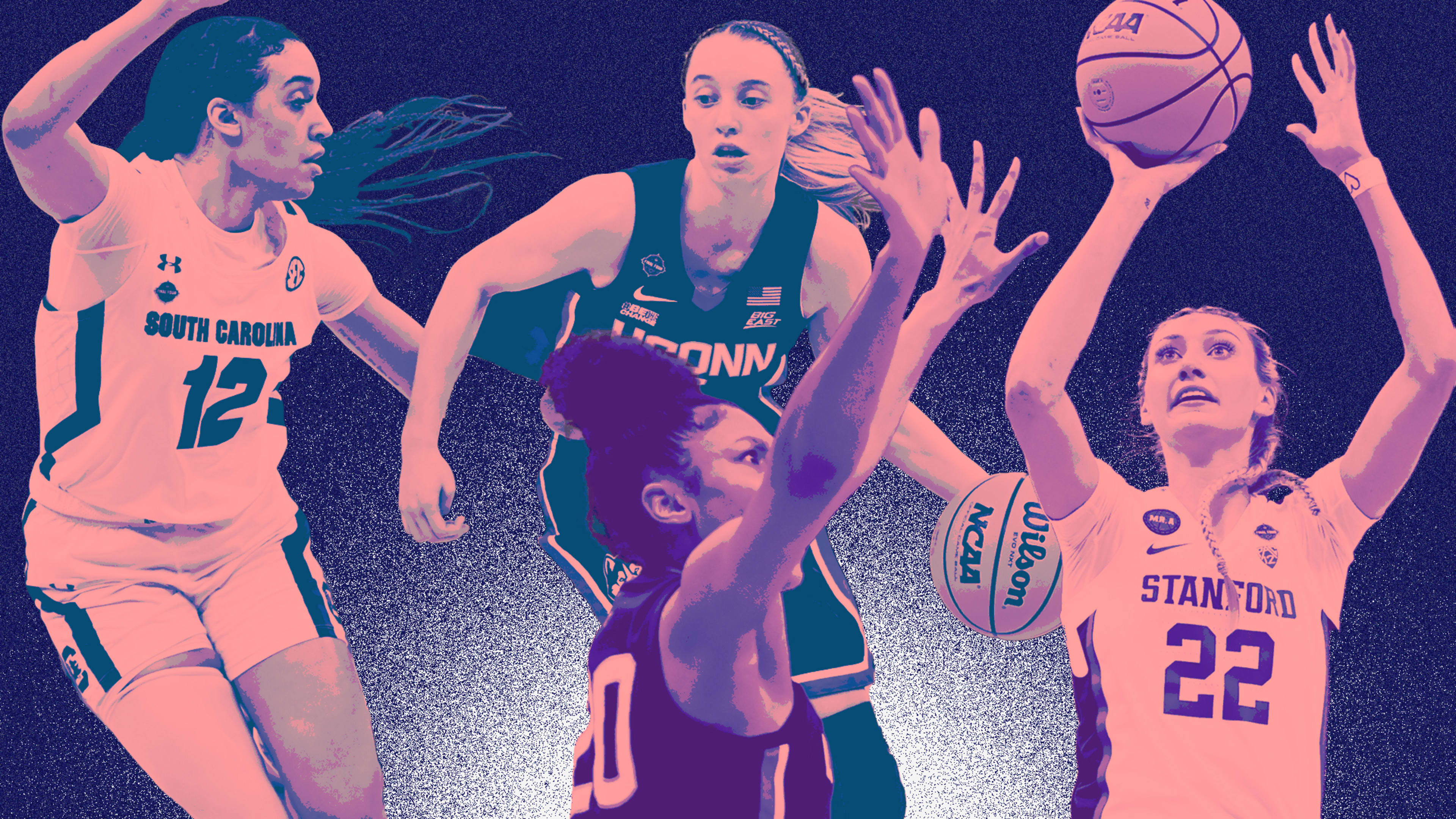This year’s incredible March Madness meant a lot of people are getting excited about college hoops. But as names like UCLA’s Jaime Jaquez Jr., UConn’s Adama Sanogo, or Duke’s Kyle Filipowski are celebrated by fans and sportscasters alike, it’s far less likely you’ll be hearing much about the women stars whose incredible athleticism is inspiring local fans and helping young girls dream.
Consider the numbers: As of October of last year, women college basketball players accounted for 12.6% of name, image, and likeness (NIL) endorsement deals. This figure reflects growing interest by brands in women’s sports, but it still falls far behind what men earn. And that’s a shame.
Role models: Giving women athletes a voice
Lifting the stories of women athletes and investing in them provides an outsize return across brand awareness, engagement, and loyalty while simultaneously having a huge impact across a range of issues, inspiring young women—especially teenage girls—at a time when there are still far too few female role models.
Sania Haq, head of research at AudienceNet, which partnered with London Sport on research to “reveal the power of inspirational female role models,” said, “It’s been fascinating to hear from women in our research about their inspirations and role models, especially the importance of representation in sport at both professional and grassroots level.” Haq notes that influencers like Serena Williams are supporting not only other female athletes but mothers and women of color. That inspiration can be helpful even at local levels.
In another piece titled “Women in Sports: Role Models for Life,” Sophie Arenas wrote, “Indeed, female athletes do serve as powerful role models for young girls; they promote a healthy lifestyle and participation in physical activity. Not only do female athletes promote a healthy lifestyle but also defy stereotypes of what society believes a female body should look like.”
If we give women athletes a platform, they can make a huge difference. Take, for example, Paige Bueckers and Cameron Brink. Paige, a junior at UConn, became the first freshman to win the prestigious Naismith Trophy, presented annually to college basketball’s most outstanding player. She has been a fierce advocate for equality and has inspired her over 1 million followers on Instagram as she celebrates her teammates and bravely battles back from injury.
Cameron, in her third year at Stanford, had an incredible season (despite Stanford’s shocking exit early in the tournament). She has been named an Associated Press (AP) and U.S. Basketball Writers Association (USBWA) All-American and the Pac-12 Defensive Player of the Year. In one recent game, she not only led her squad with 25 points but also went 15-for-15 from the free throw line, a streak no Stanford player has achieved in two decades.
My company, Chegg, is proud to have both these athletes as brand ambassadors to help raise awareness of important issues like food insecurity and mental health. Mental health in particular is an urgent priority among the student population.
Last year, Paige took to Instagram to raise awareness of food insecurity and our company’s involvement in the issue.
And just last month, Cameron informed her 234,000 followers on Instagram about the inaugural Student Mental Health Week, a global initiative supported by Chegg.
A platform to support important issues
According to the most recent health assessment by the American College of Health Association, nearly half of all college students surveyed reported feeling stressed, and 38.9 percent said stress was interfering with their ability to learn.
The same study, sadly but not surprisingly, found that undergraduate female students were much more stressed than males. They also applied different coping strategies than their male counterparts, often seeking solace in positive role models outside of their immediate social environment.
This data point alone should encourage anyone seriously interested in helping advance the career of our most promising female athletes. Promoting talented champions like Cameron Brink and Paige Bueckers not only makes sports more equitable—a worthy goal in its own right—it also helps young women in college connect with positive peer role models who are talking about the kinds of issues they experience in their everyday lives.
As we cheer for our favorite schools and players this March, then, let us pay more attention to the worthy women, too. We should all do our part to ensure that strategies are informed by the power of women athletes and that the number of NIL deals and the impact those deals have through women athletes continues to grow.
Esther Lem is the CMO of Chegg.
Recognize your brand’s excellence by applying to this year’s Brands That Matter Awards before the final deadline, June 7.
Sign up for Brands That Matter notifications here.
